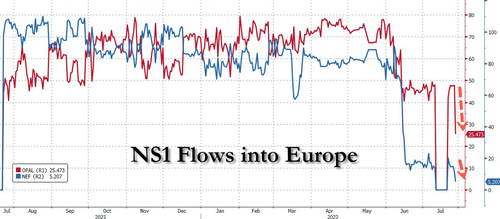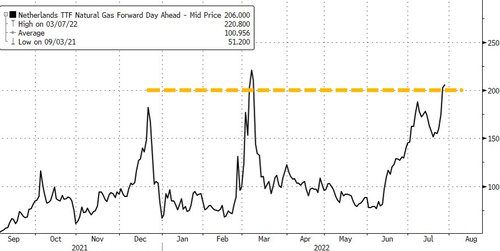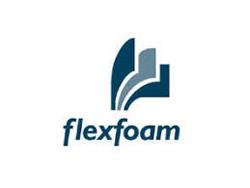Company News
July 28, 2022
BASF Results
German chemicals giant BASF reports profits based on price hikes
DPA – Yesterday 4:09 AM
German chemical company BASF said on Wednesday that it managed to boost net income by 26.3% in the second quarter thanks to “significant price increases.”

Net income came in at €2.1 billion ($2.13 billion). The comparison was with the second quarter of 2021.
“Despite the continued high raw materials and energy prices, we again achieved strong earnings in the second quarter,” said board chairperson Martin Brudermüller.
Like many industries, BASF is nervously watching rising gas prices spurred by Russia’s decision to limit shipments to Europe, a ruse that the West says is payback for Western sanctions. Those sanctions were laid down because of Russia’s invasion of Ukraine.
Gas is critical not only to power BASF factories, but is also a key ingredient in some processes. But the company reported strong sales to all of its key clients, except for the car sector, which has been hit hard by pandemic-related supply problems.
BASF also reported a 16.3% increase in sales to €23 billion. Earnings before interest and taxes (EBIT) came in at €2.3 billion, which matched levels in the the second quarter of 2021.
Sales in the chemicals segment grew 27.2%, while sales in the materials segment rose 29.9%. Sales in the industrial solutions segment rose by 12.1% and sales in the surface technologies segment increased by 7.6%. Nutrition and care segment sales rose by 30.9%.
Looking ahead to fiscal 2022, BASF now expects sales in the range of €86 billion-€89 billion, compared to prior outlook of €74 billion-€77 billion. EBIT before special items is expected between €6.8 billion and €7.2 billion.
July 27, 2022
BASF Production Update
BASF Prepares To Slash Ammonia Production In Germany Amid Worsening NatGas Crunch
by Tyler DurdenWednesday, Jul 27, 2022 – 08:30 AM
German chemicals company BASF SE paid an extra 800 million euros ($809.5 million) to keep its plants operating in the second quarter compared with a year earlier amid skyrocketing natural gas prices. The impact of high energy prices has forced the company to make a difficult decision: slash the production of ammonia, which could have potential consequences for farming to the food industry.
“We are reducing production at facilities that require large volumes of natural gas, such as ammonia plants,” BASF Chief Executive Martin Brudermuller said in a conference call after an earnings report.
Brudermuller said BASF would tap external suppliers to fill the deficit as German plants reduced output. He warned about potential supply disruptions that could boost fertilizer costs for farmers.
Reuters details how ammonia plays a critical role in manufacturing nitrogen-based fertilizers, plastic-making, and diesel exhaust fluid. A byproduct of ammonia production is high-purity carbon dioxide (CO2) which is heavily used in the food industry.
The news of BASF reducing ammonia production because of soaring NatGas prices comes as Russian state-owned energy producer Gazprom PJSC is expected to halve supplies via Nord Stream 1 to Europe to about 20% today. EU member states agreed Tuesday to reduce NatGas demand by 15% over the next eight months, though countries like Germany, without any liquefied natural gas (LNG) port terminals to replace Russian pipeline NatGas, might have to make more considerable sacrifices.

Benchmark NatGas prices in Europe at the Dutch TTF hub hit their highest level since March. Prices have shot up 35% in a week, over 200 euros per megawatt-hour (MWh), as Putin turns the screws on Europe by reducing pipeline capacity to Europe.

“Chemical companies are the biggest industrial natural-gas users in Germany, and ammonia is the single most gas-intensive product within that industry,” Reuters said.
Arne Rautenberg, a fund manager at Union Investment, said ammonia is a prime candidate by chemical companies to cut production first over the NatGas supply squeeze.
“In the northern hemisphere, nitrogen fertilizer is applied primarily during the spring. It can also be produced in the United States and shipped to Europe,” Rautenberg said, adding that the CO2 supply for the food industry could experience disruptions.
The chemical industry lobby VCI indicates German ammonia production has been curbed (some of which began last October) considerably because of soaring energy prices. This could soon impact industries that rely heavily on ammonia and ripple through the economy already facing recession.
July 27, 2022
BASF Production Update
BASF Prepares To Slash Ammonia Production In Germany Amid Worsening NatGas Crunch
by Tyler DurdenWednesday, Jul 27, 2022 – 08:30 AM
German chemicals company BASF SE paid an extra 800 million euros ($809.5 million) to keep its plants operating in the second quarter compared with a year earlier amid skyrocketing natural gas prices. The impact of high energy prices has forced the company to make a difficult decision: slash the production of ammonia, which could have potential consequences for farming to the food industry.
“We are reducing production at facilities that require large volumes of natural gas, such as ammonia plants,” BASF Chief Executive Martin Brudermuller said in a conference call after an earnings report.
Brudermuller said BASF would tap external suppliers to fill the deficit as German plants reduced output. He warned about potential supply disruptions that could boost fertilizer costs for farmers.
Reuters details how ammonia plays a critical role in manufacturing nitrogen-based fertilizers, plastic-making, and diesel exhaust fluid. A byproduct of ammonia production is high-purity carbon dioxide (CO2) which is heavily used in the food industry.
The news of BASF reducing ammonia production because of soaring NatGas prices comes as Russian state-owned energy producer Gazprom PJSC is expected to halve supplies via Nord Stream 1 to Europe to about 20% today. EU member states agreed Tuesday to reduce NatGas demand by 15% over the next eight months, though countries like Germany, without any liquefied natural gas (LNG) port terminals to replace Russian pipeline NatGas, might have to make more considerable sacrifices.

Benchmark NatGas prices in Europe at the Dutch TTF hub hit their highest level since March. Prices have shot up 35% in a week, over 200 euros per megawatt-hour (MWh), as Putin turns the screws on Europe by reducing pipeline capacity to Europe.

“Chemical companies are the biggest industrial natural-gas users in Germany, and ammonia is the single most gas-intensive product within that industry,” Reuters said.
Arne Rautenberg, a fund manager at Union Investment, said ammonia is a prime candidate by chemical companies to cut production first over the NatGas supply squeeze.
“In the northern hemisphere, nitrogen fertilizer is applied primarily during the spring. It can also be produced in the United States and shipped to Europe,” Rautenberg said, adding that the CO2 supply for the food industry could experience disruptions.
The chemical industry lobby VCI indicates German ammonia production has been curbed (some of which began last October) considerably because of soaring energy prices. This could soon impact industries that rely heavily on ammonia and ripple through the economy already facing recession.
July 25, 2022
Old News
Wm. T. Burnett & Co. Acquires Flex Foam

Baltimore, MD, June 16, 2022-Wm. T. Burnett & Co., headquartered in Baltimore, Maryland, has acquired Flex Foam, the first polyurethane foam manufacturer in Arizona. Financial details of the transaction were not disclosed.
“The addition of Flex Foam to Wm. T. Burnett marks an important milestone in the 137-year history of the company,” said Richard B.C. Tucker, Jr., chief executive officer of the Burnett Group. “Like Burnett, Flex Foam was a family-owned business with which we share common values, including a commitment to provide the highest levels of quality and customer service. We look forward to building on our legacy of innovation in the polyurethane industry with broader reach in the western United States.”
Flex Foam was founded in Phoenix in 1978 by Russ Cortright and his sons Mike and Steve Cortright. The company specializes in producing polyurethane foam for use in bedding, furniture, packaging, carpet underlay, medical components, sports equipment, and acoustic performance products.
Wm. T. Burnett is no stranger to Phoenix, as the company currently operates one of its nonwovens manufacturing facilities in the city. Burnett’s urethane foam division is headquartered in Jessup, Maryland, while the nonwovens division is based in Statesville, North Carolina.
https://www.floordaily.net/flooring-news/wm-t-burnett-co-acquires-flex-foam
July 25, 2022
Old News
Wm. T. Burnett & Co. Acquires Flex Foam

Baltimore, MD, June 16, 2022-Wm. T. Burnett & Co., headquartered in Baltimore, Maryland, has acquired Flex Foam, the first polyurethane foam manufacturer in Arizona. Financial details of the transaction were not disclosed.
“The addition of Flex Foam to Wm. T. Burnett marks an important milestone in the 137-year history of the company,” said Richard B.C. Tucker, Jr., chief executive officer of the Burnett Group. “Like Burnett, Flex Foam was a family-owned business with which we share common values, including a commitment to provide the highest levels of quality and customer service. We look forward to building on our legacy of innovation in the polyurethane industry with broader reach in the western United States.”
Flex Foam was founded in Phoenix in 1978 by Russ Cortright and his sons Mike and Steve Cortright. The company specializes in producing polyurethane foam for use in bedding, furniture, packaging, carpet underlay, medical components, sports equipment, and acoustic performance products.
Wm. T. Burnett is no stranger to Phoenix, as the company currently operates one of its nonwovens manufacturing facilities in the city. Burnett’s urethane foam division is headquartered in Jessup, Maryland, while the nonwovens division is based in Statesville, North Carolina.
https://www.floordaily.net/flooring-news/wm-t-burnett-co-acquires-flex-foam